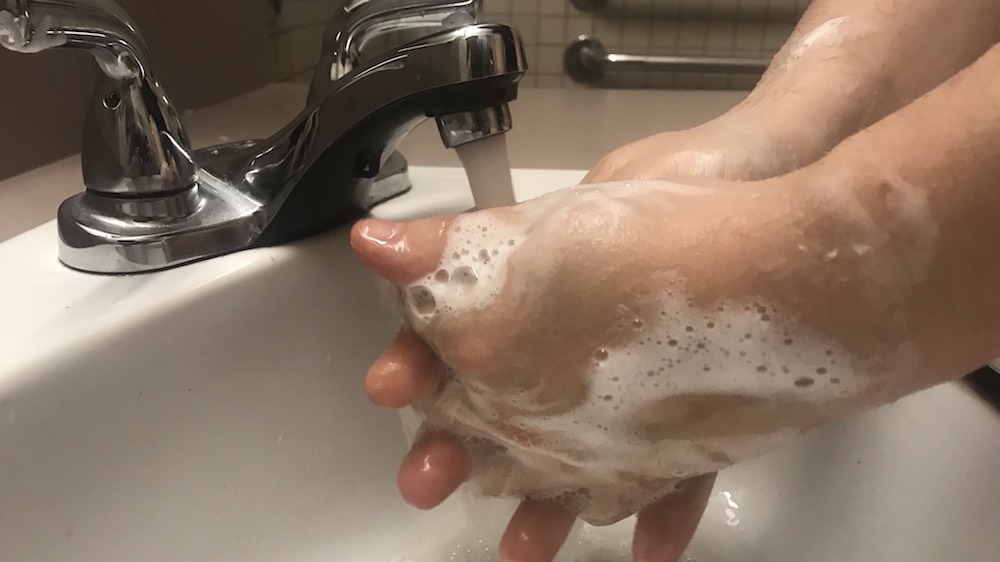Nova Scotia tells government workers who have travelled abroad to stay home
No COVID-19 cases so far, but provincial officials say they expect this to change

caption
Health officials recommend you wash your hands with soap for at least 20 seconds.Nova Scotia’s public sector employees, public school students and children in daycare who travelled outside Canada are now required to self-isolate for 14 days due to COVID-19 concerns.
These measures were announced Friday by Premier Stephen McNeil, provincial Chief Medical Officer of Health Dr. Robert Strang, and other government officials.
McNeil emphasized that Nova Scotia currently has no cases of COVID-19, an infectious disease caused by the novel coronavirus.
“We can expect to see cases here very soon,” McNeil said at a news conference in Halifax. “We all need to do our part to reduce the spread, protect our most vulnerable and keep Nova Scotians healthy and safe.” Related stories
McNeil said employees in the public sector will be paid during isolation and schools will adjust their curricula to ensure the students don’t fall behind.
The province has not closed public schools, unlike Ontario and Quebec. In Ontario, all publicly funded schools will be closed from March 14 to April 5, while in Quebec all daycares, schools, colleges and universities will be closed for at least two weeks.
Paul Wozney, president of the Nova Scotia Teachers Union, supports extended closures in Nova Scotia like what’s happening in Ontario and Quebec.
“Schools will be hubs where COVID-19 is spread quickly and thoroughly through communities,” Wozney said in an interview. “We shouldn’t be giving the virus access to easily transmissible populations, and schools are that.”
Strang advises social gatherings to be capped at 150 people.
Already there have been numerous closures and cancellations in Halifax, including the St. Patrick’s Day Parade, the 2020 Women’s World Hockey Championships and the Halifax Seaport Farmers’ Market. The Nova Scotia courts have suspended all jury trials for 60 days.
The federal government is implementing measures to try to contain the spread of the virus. Members of the Canadian Armed Forces cannot travel internationally for three weeks. In addition, there are fewer airports where international flights are permitted to land.
“Now is the time to take action that the premier has outlined,” Strang said. “If we wait until it’s here it will be too late.”
There are 44,067 cases of COVID-19 worldwide, including 93 in Canada, according to the World Health Organization’s latest situation report.
Strang said there have been 226 tests in Nova Scotia and all were negative.
Currently, there is no vaccine or direct treatment for the virus. Nova Scotians are urged to do the following to slow the spread of the virus:
- Wash your hands frequently with soap for 20 seconds,
- Don’t touch your face with unwashed hands,
- Clean surfaces at home and in public places,
- Stay home if you’re sick.
The most vulnerable to the disease are the elderly, people with chronic conditions and people with suppressed immune systems.
“It’s not only important to follow the public health measure to protect yourself, but to protect the more vulnerable people in your communities,” Strang said.
There have been more calls to the province’s 811 health information line. Strang said people who want information should go to the Nova Scotia coronavirus website or call the federal information line 1-833-784-4397, and not call 811.
“Do not call 811 unless you have travelled outside the country and developed [COVID-19 symptoms],” Strang said. “We need to ensure 811 is used when it’s needed for reports.”
McNeil said everyone needs to do their part. He encouraged the private sector to implement self-isolation measures.
“I want us to be the province in Canada that has actually dealt with the virus in the most professional, best way collectively,” he said.
About the author

Will McLernon
Will McLernon is a journalist with The Signal. He is currently finishing up his Bachelor of Journalism (Honours) degree with a minor in International...
